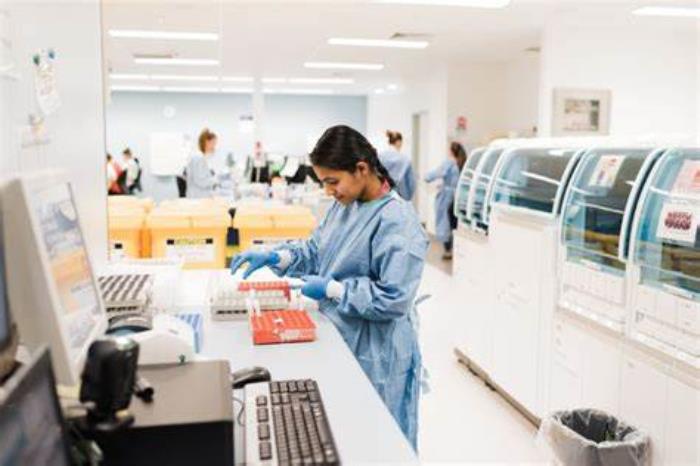After undergoing a lung transplant, maintaining a healthy immune system is crucial for preventing infections and ensuring the success of the transplant. The immune system plays a vital role in protecting the body from pathogens, but post-transplant patients often require immunosuppressive therapy to prevent rejection of the new organ. This delicate balance requires careful management to support overall health while minimizing the risk of complications.
Medical disclaimer: This content is for general awareness and does not replace a doctor’s consultation. For diagnosis or treatment decisions, consult a qualified specialist.
Key Factors Influencing Immune Function After Lung Transplant
Several factors can influence the functioning of the immune system after a lung transplant. These include the patient's age, overall health, and the presence of any co-existing medical conditions. Furthermore, the type and dosage of immunosuppressive medications can significantly impact immune responses. Understanding these factors is essential for developing a personalized care plan to support the immune system effectively.
Adopting a Nutrient-Rich Diet for Immune Support
A well-balanced, nutrient-rich diet is fundamental for maintaining a healthy immune system post-transplant. Incorporating a variety of fruits, vegetables, lean proteins, and whole grains can provide essential vitamins and minerals that bolster immune function. Specific nutrients, such as vitamin C, vitamin D, and zinc, are particularly beneficial for enhancing immune responses and promoting healing.

The Role of Hydration in Immune Health
Staying adequately hydrated is vital for overall health and immune function, especially after a lung transplant. Proper hydration helps maintain optimal physiological functions, including nutrient transport and waste elimination. It is recommended that patients consume sufficient fluids daily, primarily through water, to support their immune system and overall recovery process.
Importance of Regular Physical Activity for Immune Function
Engaging in regular physical activity plays a significant role in enhancing immune function post-lung transplant. Moderate exercise has been shown to improve circulation, reduce stress, and boost the immune system. Patients should consult their healthcare providers to develop a tailored exercise regimen that suits their recovery stage while considering any limitations due to their condition.
Managing Stress Levels to Support Immune Health
Chronic stress can negatively impact the immune system, making it essential for lung transplant recipients to adopt effective stress management techniques. Practices such as mindfulness, meditation, and yoga can help mitigate stress levels and promote relaxation. These techniques not only enhance mental well-being but also contribute to a more robust immune response.
Importance of Adequate Sleep for Immune Function
Quality sleep is crucial for maintaining a healthy immune system, especially for individuals recovering from a lung transplant. During sleep, the body undergoes vital processes that aid in healing and immune regulation. Patients should aim for 7-9 hours of restorative sleep each night and establish a consistent sleep routine to enhance their recovery and immune health.
Regular Medical Follow-ups for Monitoring Immune Health
Regular follow-up appointments with healthcare providers are essential for monitoring the immune system's status after a lung transplant. These visits allow for timely adjustments to immunosuppressive therapy, blood tests to check for potential complications, and discussions about any emerging health concerns. Consistent medical oversight is critical for ensuring long-term health and transplant success.
Vaccination Guidelines for Lung Transplant Recipients
Vaccinations are an important aspect of maintaining a healthy immune system post-lung transplant. Patients should discuss with their healthcare providers which vaccines are appropriate for them, as certain vaccinations can help prevent infections. It is crucial to receive vaccinations at the right time, as some may be contraindicated shortly after the transplant.

Avoiding Infections Through Hygiene Practices
Post-transplant patients are at an increased risk of infections, making hygiene practices vital. Regular handwashing, avoiding close contact with sick individuals, and maintaining a clean living environment can significantly reduce the risk of infections. Patients should also be mindful of food safety to prevent foodborne illnesses.
Understanding the Role of Immunosuppressive Medications
Immunosuppressive medications are necessary to prevent organ rejection after a lung transplant. Understanding how these medications work, their potential side effects, and the importance of adherence to prescribed regimens is crucial for patients. Regular communication with healthcare providers about medication management can optimize immune function while minimizing risks.
Recognizing Symptoms of Infection Early
Early recognition of infection symptoms is essential for lung transplant recipients. Patients should be vigilant for signs such as fever, cough, or shortness of breath. Prompt reporting of these symptoms to healthcare providers can lead to early intervention and treatment, which is critical for maintaining health post-transplant.
Limitations on Physical Activities Post-Transplant
While physical activity is encouraged, patients must also be aware of their limitations following a lung transplant. High-impact or strenuous activities may pose risks, especially in the early stages of recovery. Patients should work closely with their healthcare teams to determine safe levels of activity and gradually increase intensity as they heal.
Importance of Mental Health Support for Immune Function
Mental health significantly impacts physical health, including immune function. Post-lung transplant patients may experience anxiety or depression, which can adversely affect their recovery. Seeking support through counseling, joining support groups, or engaging in community activities can foster emotional well-being and contribute positively to immune health.
Utilizing Herbal Supplements and Natural Remedies Safely
Many patients consider using herbal supplements or natural remedies to enhance their immune health. However, it is crucial to approach these options cautiously, as some may interact with immunosuppressive medications or have unwanted side effects. Patients should always consult their healthcare providers before starting any new supplements to ensure safety and efficacy.
Creating a Supportive Environment for Recovery
A supportive environment can significantly enhance recovery and immune function post-lung transplant. Family and friends play a critical role in providing emotional support and assistance with daily activities. Creating a peaceful and clean living space can also promote relaxation and reduce stress, which is beneficial for the immune system.
Understanding the Importance of Lung Function Tests After Transplant
Discover why lung function tests are essential for monitoring transplant health. This blog explains how these tests help detect potential issues early.
Exploring the Role of Stem Cells in Lung Transplantation
Dive into the promising role of stem cells in lung transplantation. Learn how stem cell research is paving the way for improved outcomes and innovative treatments.
Staying Informed About Lung Transplant Care
Staying informed about lung transplant care is essential for patients to take an active role in their health. Understanding the latest research, treatments, and recommendations can empower patients to make informed decisions regarding their care. Engaging with healthcare teams and participating in educational resources can enhance knowledge and promote better health outcomes.
Best Lung Transplant in India
The Best Lung Transplant in India offers a vital treatment option for patients with end-stage lung diseases, combining advanced surgical expertise with comprehensive post-transplant care.
Best Lung Transplant Hospitals in India
The Best Lung Transplant Hospitals in India are equipped with cutting-edge technology and experienced transplant teams, ensuring seamless care and improved outcomes for patients.
Lung Transplant Cost in India
The Lung Transplant Cost in India is structured to provide affordability while maintaining high standards of medical care and long-term support for patients.
Best Lung Transplant Surgeons in India
The Best Lung Transplant Surgeons in India are highly skilled in handling complex transplant cases, offering precise surgical interventions and personalized patient care for successful recoveries.
FAQs on Maintaining a Healthy Immune System After Lung Transplant
What lifestyle changes should I make after a lung transplant?
Post-lung transplant, patients should focus on a healthy diet, regular exercise, stress management, and adherence to medication regimens. These lifestyle changes can significantly enhance immune function and overall recovery.
How can I recognize signs of infection after my transplant?
Patients should monitor for symptoms such as fever, persistent cough, or shortness of breath. Early recognition and prompt reporting to healthcare providers can facilitate timely interventions.
Are there specific foods I should avoid post-transplant?
Patients should avoid raw or undercooked foods, unpasteurized dairy products, and foods from questionable sources to reduce the risk of foodborne illnesses. Following food safety guidelines is essential for maintaining health.
How often should I follow up with my healthcare provider?
Regular follow-ups are typically recommended every few weeks initially, transitioning to less frequent visits as recovery progresses. Patients should maintain open communication with their healthcare team regarding any concerns.
Artificial lungs are medical devices designed to support or replace the function of the lungs, particularly for patients with severe lung diseases. These devices, such as extracorporeal membrane oxygenation (ECMO) and hollow fiber membrane gas exchangers, can serve as a bridge to lung transplantation or even as a long-term solution. Recent advancements in biomaterials and tissue engineering have led to the development of bioartificial lungs, which mimic the properties of natural lungs. Role of Artificial Lungs and Future Innovations in Transplants
Updated for 2025 – Discover the best hospitals in India for lung transplant procedures, including top choices, advanced techniques, and cost-effective options. Lung Transplant Cost in India
Discover the best hospitals in India for lung transplant procedures, including top choices, advanced techniques, and cost-effective options. Lung Transplant in India